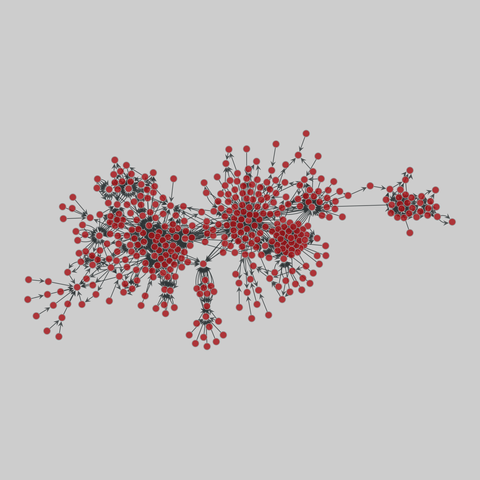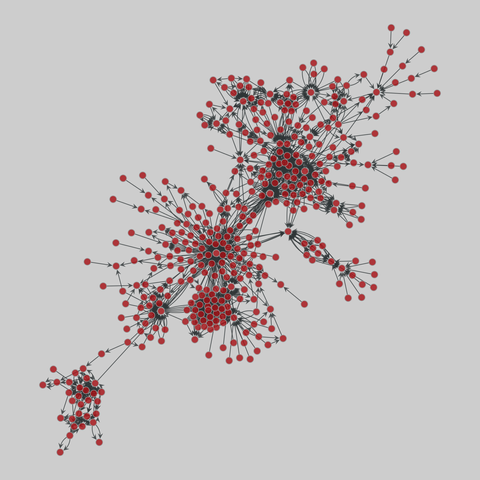2025-12-31 17:50:39
Sources: Uber is in talks to acquire the parking space reservation app SpotHero; the parking app was last valued at $290M (The Information)
https://www.theinformation.com/articles/uber-considers-deal-parking-app-spothero
2025-10-31 21:00:04
software_dependencies: Software dependencies (2010)
Several networks of software dependencies. Nodes represent libraries and a directed edge denotes a library dependency on another.
This network has 532 nodes and 1730 edges.
Tags: Technological, Software, Unweighted
https://networks.skewed.de/n…
2025-10-31 17:17:32
Happy Halloween! Orbweaver spider. Mary and Joseph Retreat Center, Rancho Palos Verdes, California, USA. August, 2024. #halloween #spider #orbweaver
2025-12-30 16:01:00
PV-Speicherbatterien: Gericht stärkt Herstellern bei Fernabschaltung den Rücken
Werden Photovoltaik-Speicher per Software gedrosselt, müssen Kunden das laut einem Landgericht trotz Leistungsversprechen als Sicherheitsmaßnahme akzeptieren.
2025-10-30 15:54:53
🇺🇦 #NowPlaying on KEXP's #MorningShow
KAYTRANADA:
🎵 SPACE INVADER
#KAYTRANADA
https://sbtrkt.bandcamp.com/track/space-invader-sbtrkt-remix
https://open.spotify.com/track/3fPW4EhpRR6BwLRPDThNeg
2025-10-31 12:59:38
2025-12-29 12:00:04
software_dependencies: Software dependencies (2010)
Several networks of software dependencies. Nodes represent libraries and a directed edge denotes a library dependency on another.
This network has 533 nodes and 1735 edges.
Tags: Technological, Software, Unweighted
https://networks.skewed.de/…
2025-10-30 11:18:00
Samsung macht Kühlschrank-Displays zur Werbefläche
Samsung bringt ein Software-Update für smarte Edel-Kühlschränke. Dazu gehört ein Bildschirmschoner, der auch Werbung anzeigt, vorerst allerdings nur in den USA.
https:…
2025-11-29 13:13:00
Airbus A320-Check: Kaum Auswirkungen auf den Flugverkehr
Trotz eines unerwartet nötigen Software-Updates bei vielen Airbus A320-Maschinen bleibt der Flugverkehr stabil. Vereinzelt kann es zu Verspätungen kommen.
htt…
2025-11-30 06:49:00
Airbus-Update nach Zwischenfall – Airlines reagieren rasch
Plötzlicher Höhenverlust, Software-Alarm und schnelle Updates: Airlines und Behörden mussten nach einem Airbus-Vorfall schnell reagieren.
https://www.



